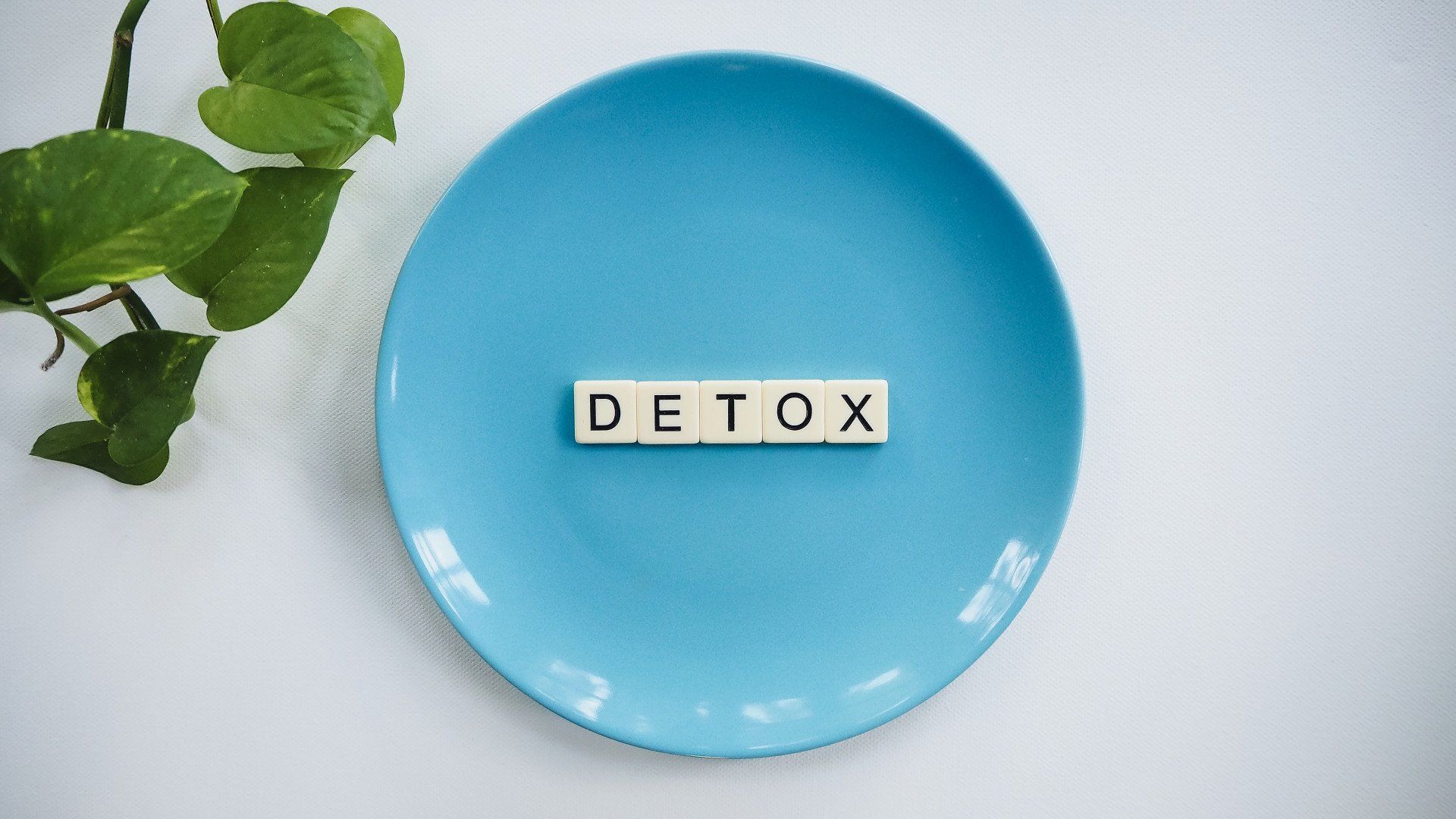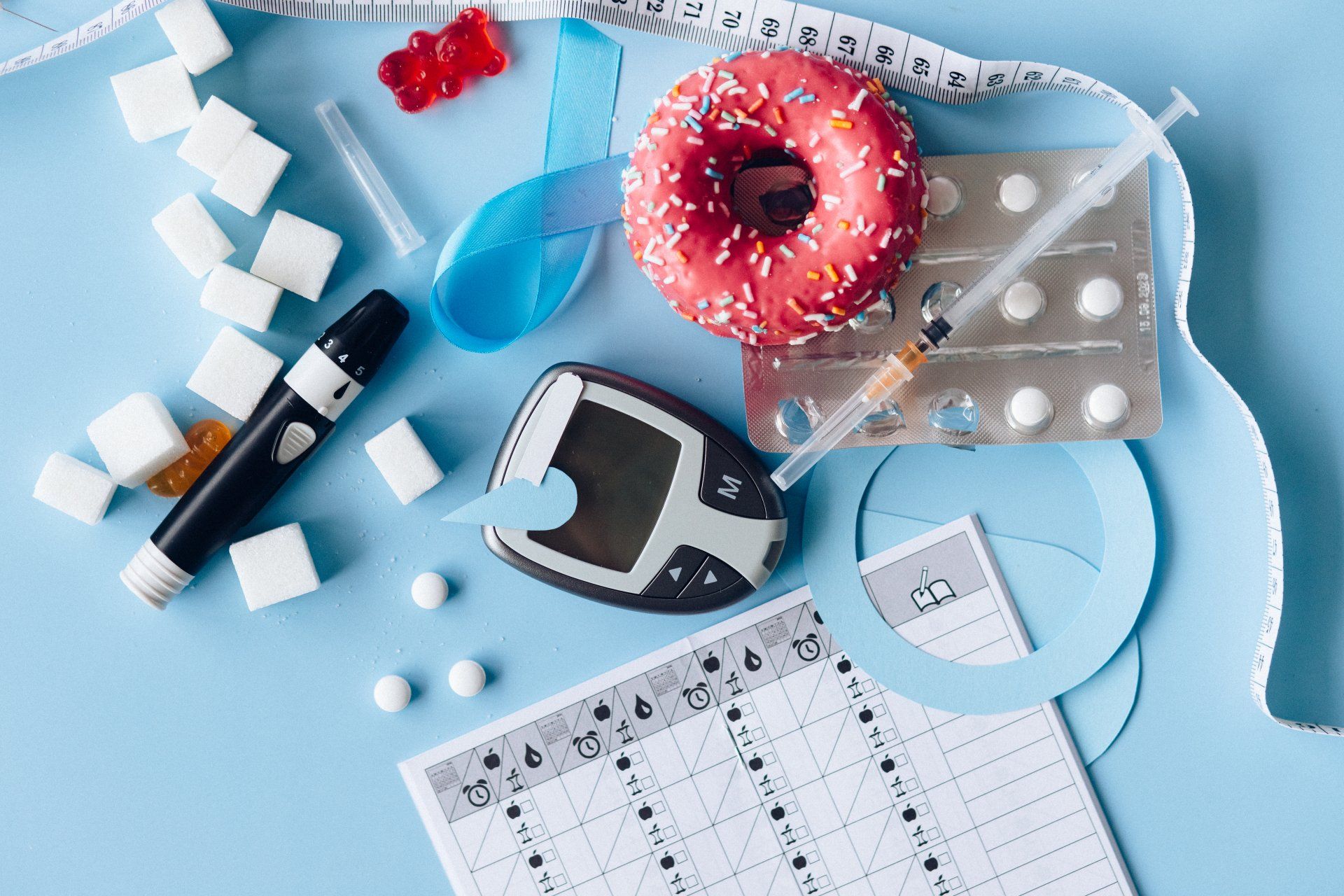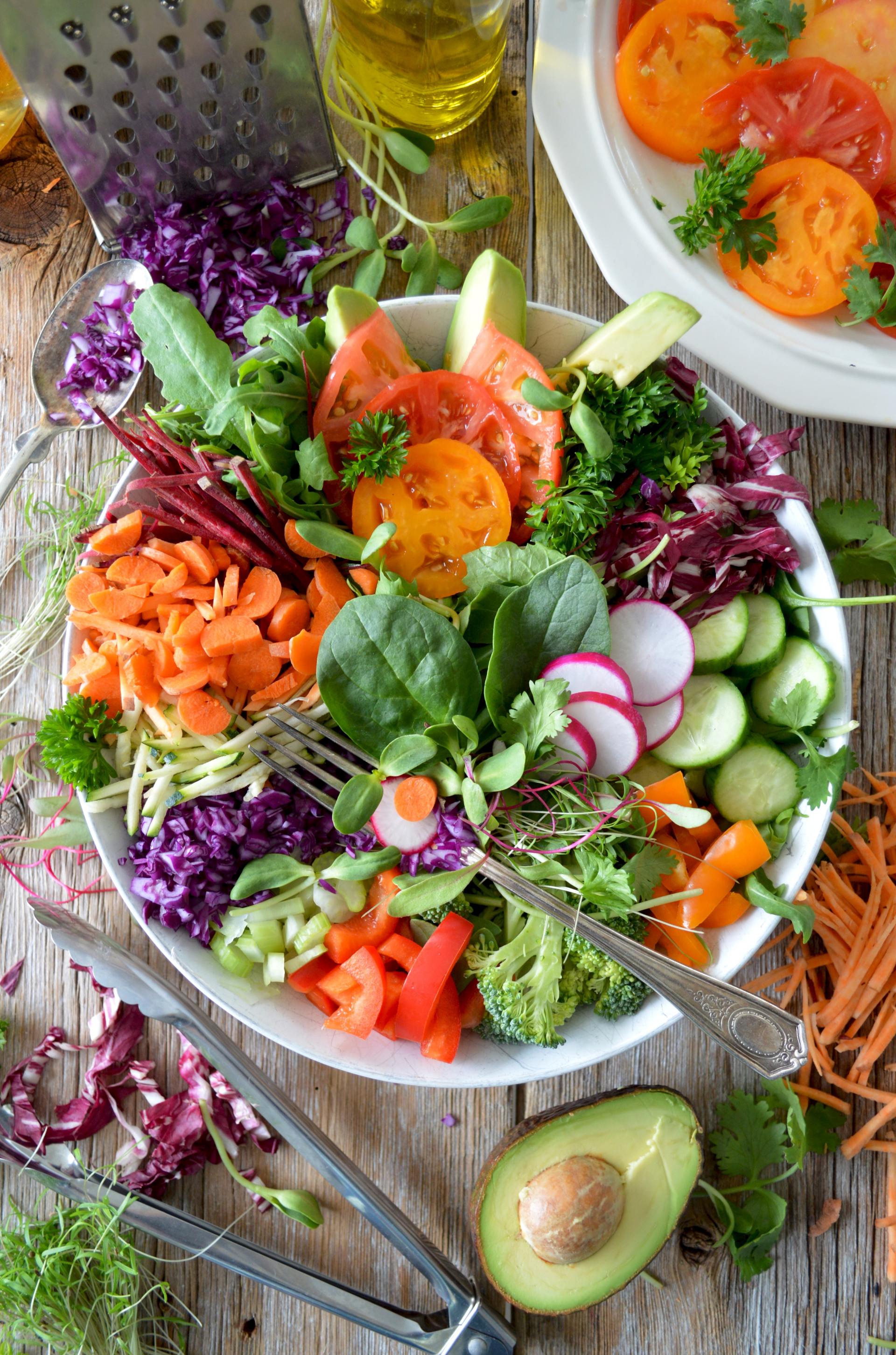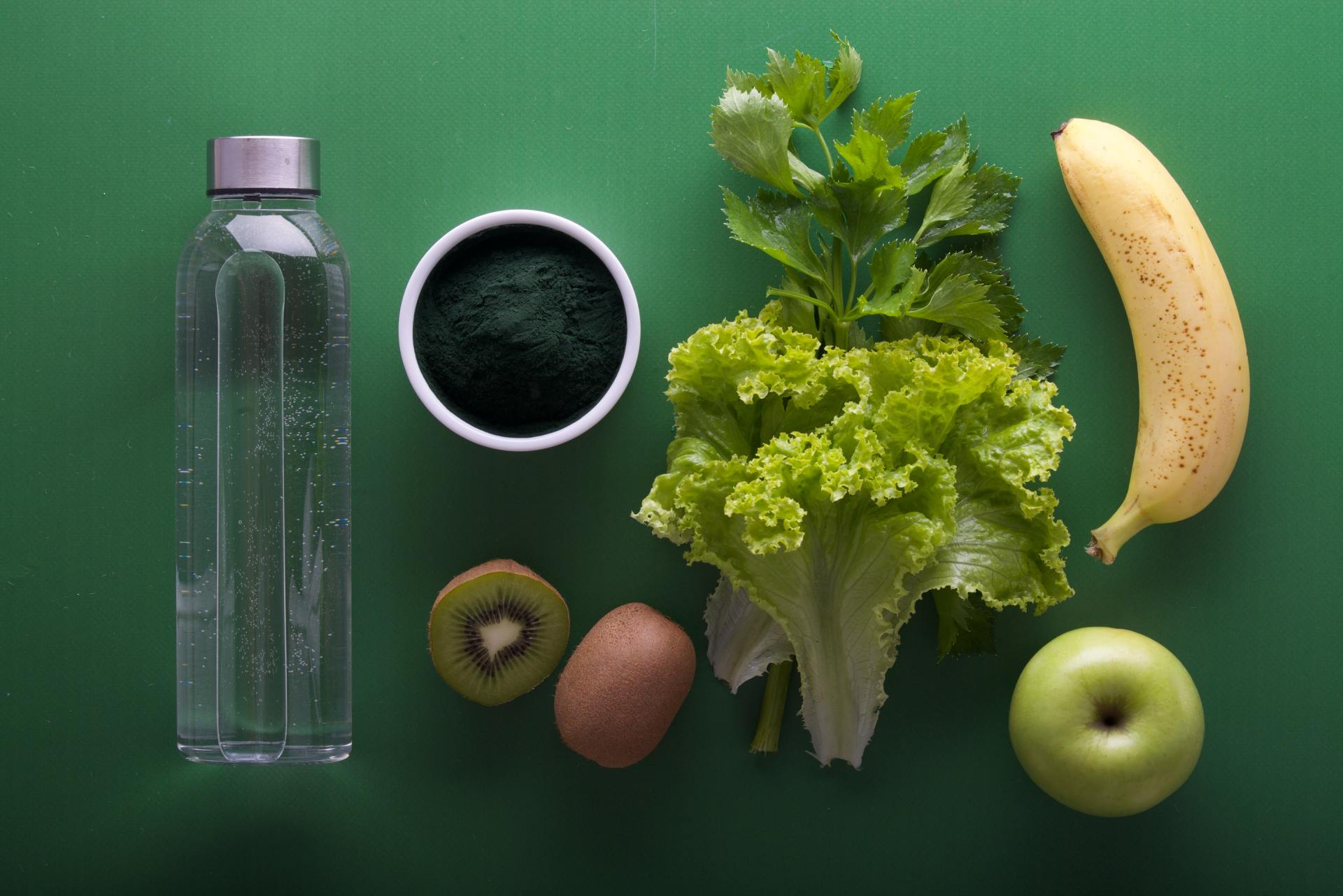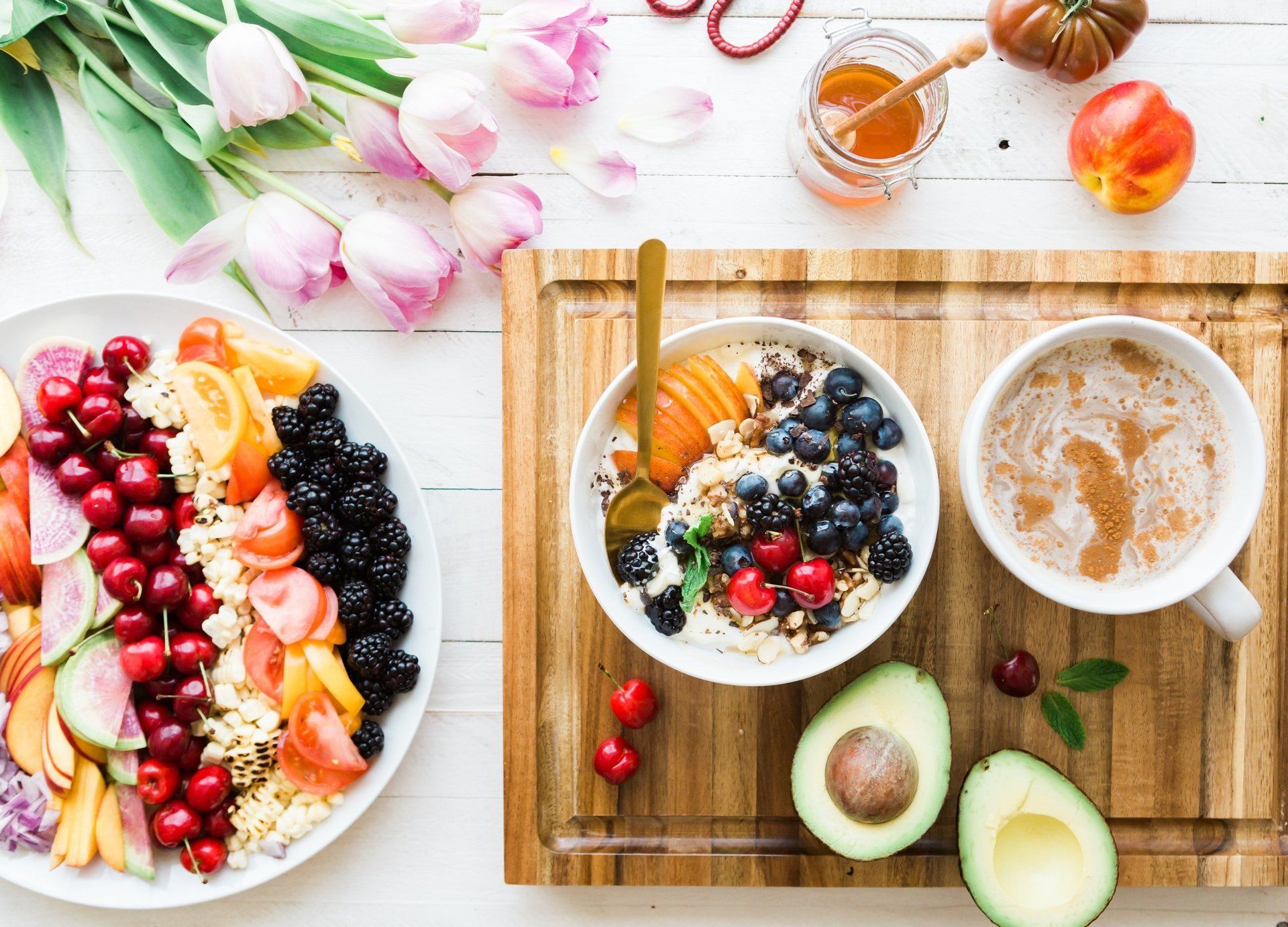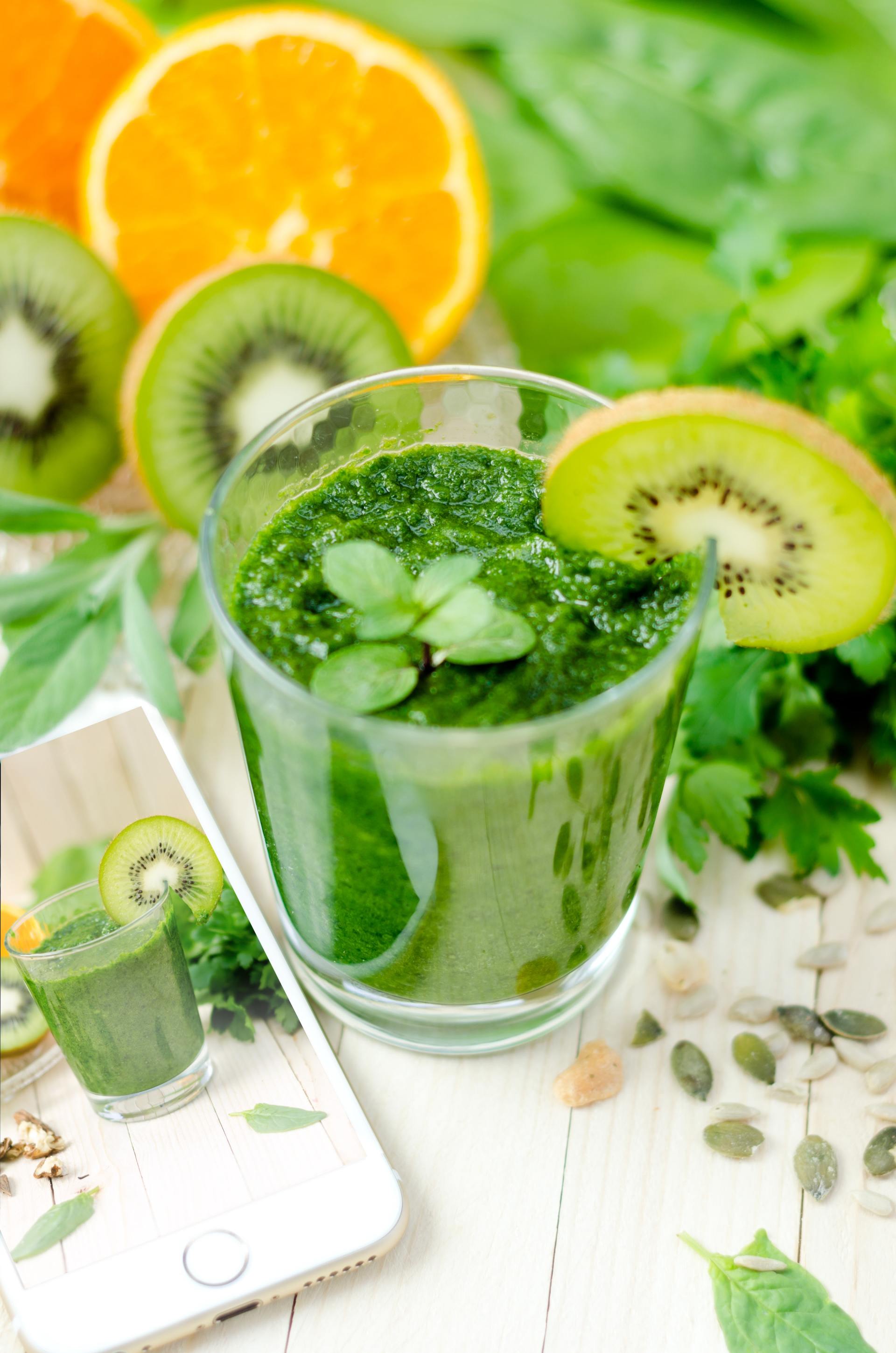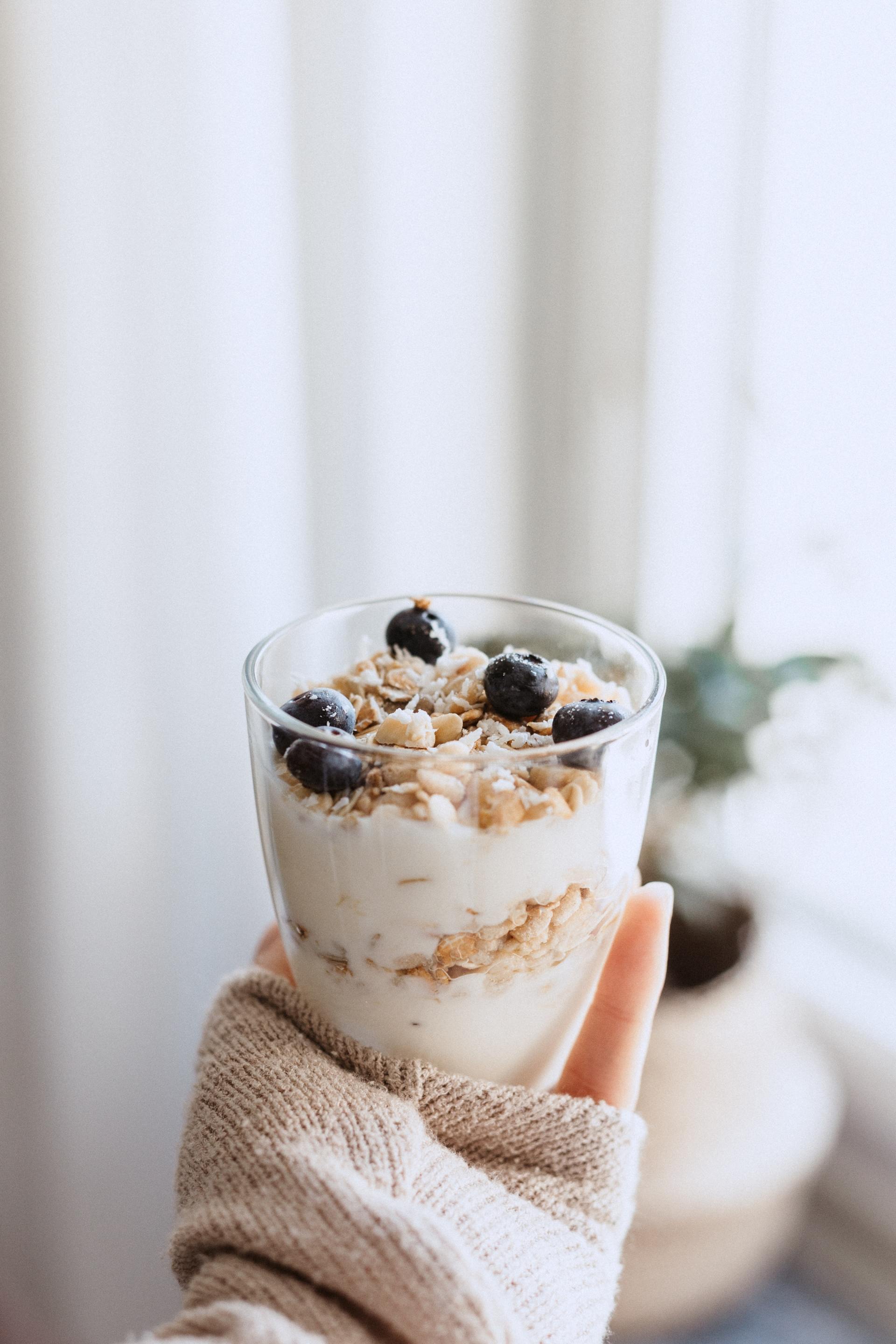Diet and gut health are very closely linked. Avoiding processed foods, high-fat foods, and foods high in refined sugars is extremely important to maintaining a healthy microbiome, as these foods destroy good bacteria and promote the growth of damaging bacteria. There are also a number of foods you can eat that actively promote the growth of beneficial bacteria, contributing to your overall health.
The gut microbiome.
The incredible complexity of the gut and its importance to our overall health is a topic of increasing research in the medical community. There are links between gut health and the immune system, mood, mental health, autoimmune diseases, endocrine disorders, skin conditions, and cancer.
At one time, our digestive system was considered a relatively “simple” body system, comprised essentially of one long tube for our food to pass through, be absorbed, and then excreted.
The term “gut microbiome” refers specifically to the microorganisms living in your intestines. A person has about 300 to 500 different species of bacteria in their digestive tract. While some microorganisms are harmful to our health, many are incredibly beneficial and even necessary to a healthy body.
Many facets of modern life such as high stress levels, too little sleep, eating processed and high-sugar foods, and taking antibiotics can all damage our gut microbiome. This in turn may affect other aspects of our health, such as the brain, heart, immune system, skin, weight, hormone levels, ability to absorb nutrients, and even the development of cancer.
There are a number of ways an unhealthy gut might manifest itself. Here are seven of the most common signs:
1. Upset stomach
Stomach disturbances like gas, bloating, constipation, diarrhea, and heartburn can all be signs of an unhealthy gut. A balanced gut will have less difficulty processing food and eliminating waste.
2. A high-sugar diet
A diet high in processed foods and added sugars can decrease the amount of good bacteria in your gut. This imbalance can cause increased sugar cravings, which can damage your gut still further. High amounts of refined sugars, particularly high-fructose corn syrup, have been linked to increased inflammation in the body. Inflammation can be the precursor to a number of diseases and even cancers.
3. Unintentional weight changes
Gaining or losing weight without making changes to your diet or exercise habits may be a sign of an unhealthy gut. An imbalanced gut can impair your body’s ability to absorb nutrients, regulate blood sugar, and store fat. Weight loss may be caused by small intestinal bacterial overgrowth (SIBO), while weight gain may be caused by insulin resistance or the urge to overeat due to decreased nutrient absorption.
4. Sleep disturbances or constant fatigue
An unhealthy gut may contribute to sleep disturbances such as insomnia or poor sleep, and therefore lead to chronic fatigue. The majority of the body’s serotonin, a hormone that affects mood and sleep, is produced in the gut. So gut damage can impair your ability to sleep well. Some sleep disturbances have also been linked to risk for fibromyalgia.
5. Skin irritation
Skin conditions like eczema may be related to a damaged gut. Inflammation in the gut caused by a poor diet or food allergies may cause increased “leaking” of certain proteins out into the body, which can in turn irritate the skin and cause conditions such as eczema.
6. Autoimmune conditions
Medical researchers are continually finding new evidence of the impact of the gut on the immune. It’s thought that an unhealthy gut may increase systemic inflammation and alter the proper functioning of the immune system. This can lead to autoimmune diseases, where the body attacks itself rather than harmful invaders.
7. Food intolerances
Food intolerances are the result of difficulty digesting certain foods (this is different than a food allergy, which is caused by an immune system reaction to certain foods). It’s thought that food intolerances may be caused by poor quality of bacteria in the gut. This can lead to difficulty digesting the trigger foods and unpleasant symptoms such as bloating, gas, diarrhea, abdominal pain, and nausea. There is some evidence that food allergies may also be related to gut health.
Things you can do for your gut health
1. Lower your stress levels
Chronic high levels of stress are hard on your whole body, including your gut. Some ways to lower stress may include meditation, walking, getting a massage, spending time with friends or family, diffusing essential oils, decreasing caffeine intake, laughing, yoga, or having a pet. Here are 10 ways to reduce feeling stressed.
2. Get enough sleep
Not getting enough or sufficient quality of sleep can have serious impacts on your gut health, which can in turn contribute to more sleep issues. Try to prioritize getting at least 7–8 hours of uninterrupted sleep per night. Your doctor may be able to help if you have trouble sleeping.
3. Eat slowly
Chewing your food thoroughly and eating your meals more slowly can help promote full digestion and absorption of nutrients. This may help you reduce digestive discomfort and maintain a healthy gut.
4. Stay hydrated
Drinking plenty of water has been shown to have a beneficial effect on the mucosal lining of the intestines, as well as on the balance of good bacteria in the gut. Staying hydrated is a simple way to promote a healthy gut.
5. Take a prebiotic or probiotic
Adding a prebiotic or probiotic supplement to your diet may be a great way to improve your gut health. Prebiotics provide “food” meant to promote the growth of beneficial bacteria in the gut, while probiotics are live good bacteria. People with bacterial overgrowth, such as SIBO, should not take probiotics. Not all probiotic supplements are high quality or will actually provide benefit. It’s best to consult your healthcare provider when choosing a probiotic or prebiotic supplement to ensure the best health benefit.
6. Check for food intolerances
If you have symptoms such as cramping, bloating, abdominal pain, diarrhea, rashes, nausea, fatigue, and acid reflux, you may be suffering from a food intolerance. You can try eliminating common trigger foods to see if your symptoms improve. If you are able to identify a food or foods that are contributing to your symptoms, you may see a positive change in your digestive health by changing your eating habits.
7. Change your diet
Reducing the amount of processed, high-sugar, and high-fat foods that you eat can contribute to better gut health. Additionally, eating plenty of plant-based foods and lean protein can positively impact your gut. A diet high in fiber has been shown to contribute tremendously to a healthy gut microbiome.
Ways to Improve Your Gut Bacteria
There are around 40 trillion bacteria in your body, most of which are in your intestines.
Collectively, they are known as your gut microbiota, and they are hugely important for your health. However, certain types of bacteria in your intestines can also contribute to many diseases.
Interestingly, the food that you eat greatly affects the types of bacteria that live inside you.
Eat a Diverse Range of Foods
There are hundreds of species of bacteria in your intestines. Each species plays a different role in your health and requires different nutrients for growth.
Generally speaking, a diverse microbiota is considered to be a healthy one. This is because the more species of bacteria you have, the greater number of health benefits they may be able to contribute to.
A diet consisting of different food types can lead to a diverse microbiota.
Unfortunately, the Western diet is not very diverse and is rich in fat and sugar. In fact, it is estimated that 75% of the world’s food is produced from only 12 plant and 5 animal species.
However, diets in certain rural regions are more diverse and rich in different plant sources.
Eat Lots of Vegetables, Legumes, Beans and Fruit
Fruits and vegetables are the best sources of nutrients for a healthy microbiota.
They are high in fiber, which can’t be digested by your body. However, fiber can be digested by certain bacteria in your gut, which stimulates their growth.
Beans and legumes also contain very high amounts of fiber.
Some high-fiber foods that are good for your gut bacteria include:
- Raspberries
- Artichokes
- Green peas
- Broccoli
- Chickpeas
- Lentils
- Beans (kidney, pinto and white)
- Whole grains
Apples, artichokes, blueberries, almonds and pistachios have all been shown to increase Bifidobacteria in humans.
Bifidobacteria are considered beneficial bacteria, as they can help prevent intestinal inflammation and enhance gut health.
Many fruits and vegetables are high in fiber. Fiber promotes the growth of beneficial gut bacteria, including Bifidobacteria.
Eat Fermented Foods
Fermented foods are foods altered by microbes.
The process of fermenting usually involves bacteria or yeasts converting the sugars in food to organic acids or alcohol. Examples of fermented foods include:
- Yogurt
- Kimchi
- Sauerkraut
- Kefir
- Kombucha
- Tempeh
Many of these foods are rich in lactobacilli, a type of bacteria that can benefit your health.
People who eat a lot of yogurt appear to have more lactobacilli in their intestines. These people also have fewer Enterobacteriaceae, a bacteria associated with inflammation and a number of chronic diseases.
Certain yogurt products may also reduce the abundance of certain disease-causing bacteria in people with irritable bowel syndrome.
However, it is important to note that many yogurts, especially flavored yogurts, contain high levels of sugar.
Therefore, the best yogurt to consume is plain, natural yogurt. This kind of yogurt is made only of milk and bacteria mixtures, which are sometimes referred to as “starter cultures.”
Furthermore, fermented soybean milk may promote the growth of beneficial bacteria, such as Bifidobacteria and lactobacilli, while decreasing quantities of some other disease-causing bacteria. Kimchi may also benefit the gut flora.
Fermented foods, particularly plain, natural yogurt, can benefit the microbiota by enhancing its function and reducing the abundance of disease-causing bacteria in the intestines.
Don’t Eat Too Many Artificial Sweeteners
Artificial sweeteners are widely used as replacements for sugar. However, it has been shown that they can negatively affect the gut microbiota.
Artificial sweeteners may negatively affect blood sugar levels due to their effects on the gut microbiota.
Eat Prebiotic Foods
Prebiotics are foods that promote the growth of beneficial microbes in the gut.
They are mainly fiber or complex carbs that can’t be digested by human cells. Instead, certain species of bacteria break them down and use them for fuel.
Many fruits, vegetables and whole grains contain prebiotics, but they can also be found on their own.
Resistant starch can also be prebiotic. This type of starch is not absorbed in the small intestine. Rather, it passes into the large intestine where it is broken down by the microbiota.
It has been shown that prebiotics can promote the growth of many healthy bacteria, including Bifidobacteria.
Prebiotics promote the growth of beneficial bacteria, especially Bifidobacteria. This may help reduce symptoms of metabolic syndrome in obese people.
Eat Whole Grains
Whole grains contain lots of fiber and non-digestible carbs, such as beta-glucan.
These carbs are not absorbed in the small intestine and instead make their way to the large intestine.
In the large intestine, they are broken down by the microbiota and promote the growth of certain beneficial bacteria.
Whole grains can promote the growth of Bifidobacteria, lactobacilli and Bacteroidetes in humans.
Whole grains may also increase feelings of fullness and reduce inflammation and heart disease risk factors.
Whole grains contain non-digestible carbs that can promote the growth of beneficial bacteria within the gut microbiota. These changes to the gut flora may improve certain aspects of metabolic health.
Eat a Plant-Based Diet
Diets containing animal-based foods promote the growth of different types of intestinal bacteria than plant-based diets do.
It has been shown that vegetarian diets may benefit the gut microbiota. This may be due to their higher fiber contents.
It has been found that a vegetarian diet led to reduced levels of disease-causing bacteria in obese people, as well as reduced weight, inflammation and cholesterol levels.
Also, that a vegetarian diet significantly decreased disease-causing bacteria, such as E. coli.
However, it is unclear if the benefits of a vegetarian diet on the gut microbiota are simply due to a lack of meat intake. Also, vegetarians tend to lead healthier lifestyles than omnivores.
Vegetarian and vegan diets may improve the microbiota. However, it is unclear if the positive effects associated with these diets can be attributed to a lack of meat intake.
Eat Foods Rich in Polyphenols
Polyphenols are plant compounds that have many health benefits, including reductions in blood pressure, inflammation, cholesterol levels and oxidative stress.
Polyphenols can’t always be digested by human cells. Given that they aren’t absorbed efficiently, most make their way to the colon, where they can be digested by gut bacteria.
Good sources of polyphenols include:
- Cocoa and dark chocolate
- Red wine
- Grape skins
- Green tea
- Almonds
- Onions
- Blueberries
- Broccoli
Polyphenols from cocoa can increase the quantity of Bifidobacteria and lactobacilli in humans, as well as reduce the quantity of Clostridia.
Furthermore, these changes in the microbiota are associated with lower levels of triglycerides and C-reactive protein, a marker of inflammation. The polyphenols in red wine have similar effects.
Polyphenols can’t be digested efficiently by human cells, but they are efficiently broken down by the gut microbiota. They may improve health outcomes related to heart disease and inflammation.
Take a Probiotic Supplement
Probiotics are live microorganisms, usually bacteria, which exert a specific health benefit when consumed.
Probiotics don’t permanently colonize the intestines in most cases. However, they may benefit your health by changing the overall composition of the microbiota and supporting your metabolism.
Probiotics do not significantly alter the composition of the microbiota in healthy people. However, in sick people, they may improve microbiota function and help restore the microbiota to good health.
Your gut bacteria are extremely important for many aspects of health.
The best way to maintain a healthy microbiota is to eat a range of fresh, whole foods, mainly from plant sources like fruits, veggies, legumes, beans and whole grains.
Eat, sleep, and be healthy
The human gut is more complex than previously thought and has a huge impact on whole-body health. A healthy gut contributes to a strong immune system, heart health, brain health, improved mood, healthy sleep, and effective digestion, and it may help prevent some cancers and autoimmune diseases. There are a number of lifestyle changes you can make to positively affect your gut health and your overall health as a result.
Thank you for your support in reading and sharing this and hopefully, you have found it beneficial.
"Providing Better Health Through Knowledge"

